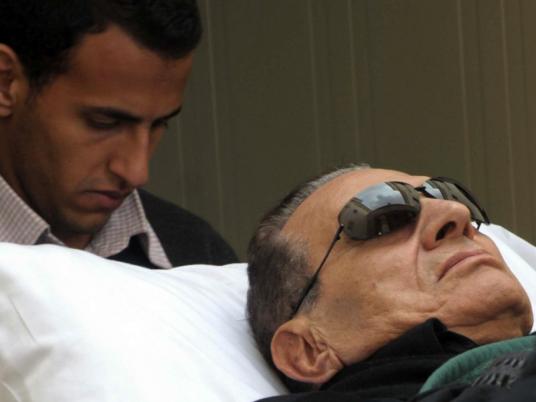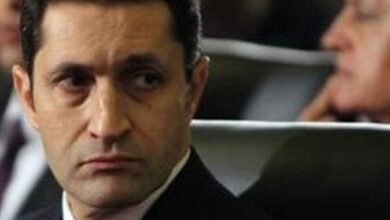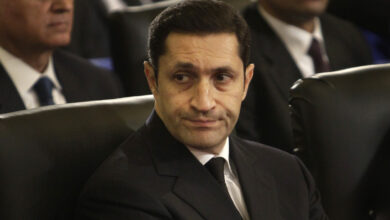
CAIRO/LONDON — Military police idly guard the gates of Egypt's presidential palace in Heliopolis, built as a 400-room luxury hotel in 1910 and vacant since a popular uprising deposed Hosni Mubarak 15 months ago.
Egyptians, who never stormed in to gawk and plunder their fallen leader's home as Tunisians and Libyans did last year, vote on 23 and 24 May for a new president, the latest stage of an uncertain transition guided bumpily by the military.
People who live in the wealthy Cairo district around the palace are delighted to be spared the road closures that snarled traffic for hours every time Mubarak went anywhere.
But some, such as 24-year-old Sara Hussein, find it harder to perceive any other changes wrought by the uprising she had so ardently supported. "Like everything, the palace is still not free of the Mubaraks. The palace, and the country, are not for the people," she says. "His regime is still in power."
Still, Egypt will soon have a freely elected — and probably civilian — president for the first time in the republic's 60-year history, assuming the generals who sealed Mubarak's fate by refusing to shoot at crowds baying for his downfall keep their promise to hand over by 1 July.
Little else is clear. Attempts to craft a new constitution have stalled. No one knows how power will be divided between the president and Parliament, dominated by Islamists.
The military, wary of Islamists and jealous of its own power, perks and privileges, may step back from day-to-day affairs but is likely to seek an as-yet undefined political role, seeing itself as the paternal guardian of the state.
The generals effectively removed Mubarak to safeguard the system, not to promote revolutionary change. So far reform has not touched that system's main pillars — the military, the judiciary, the police, security and intelligence agencies.
"We have not had regime change in Egypt, only change within the regime, with a lot of street noise outside," said Robert Springborg, a professor at the Naval Postgraduate School in Monterey, California, and a specialist on the Egyptian military.
Tarnished record
Mubarak may be gone, but his legacy lingers.
Then vice president, he was catapulted into office in October 1981 after surviving the gunfire from Islamist army soldiers who assassinated his predecessor, Anwar Sadat.
He brought calm and kept Egypt at peace for 30 years, crushing an armed Islamist rebellion in the 1990s, until political and economic frustrations with his stagnant rule boiled over in the cauldron of Cairo's Tahrir Square, where wild rejoicing greeted his departure on 11 February 2011.
Many compare Mubarak to his predecessors — Sadat, who made peace with Israel and forged an alliance with the United States, and Gamal Abdel Nasser, an Arab nationalist who once inspired those fighting colonial powers in the Arab world and beyond.
"Sadat was exceptional in his intelligence, Nasser in his charisma. Mubarak was half-talented at everything and had no exceptional quality," said Ayman Nour, who ran in a 2005 election against Mubarak and was later jailed for his pains.
"Mubarak had the kind of tyranny that is typical of half-democracies," the 47-year-old lawyer told Reuters. "He was a tyrant under the umbrella of the law."
That did not stand in the way of Mubarak's friendship with the West, which valued him for upholding Sadat's 1979 peace treaty with Israel, deeply unpopular with many Egyptians.
He was also a close ally of Saudi Arabia, which was dismayed at Washington's failure to prevent the fall of a pillar of a US regional political and security order that included Egypt and conservative Arab monarchies from Morocco to the Gulf.
"Without Mubarak, it will be harder for the United States to do the things it has done in the past," said Steven Cook, a Middle East expert at Washington's Council on Foreign Relations.
US-Egyptian relations have become tetchier since Mubarak's ouster, but military aid and cooperation continue, as does the treaty with Israel, although the peace is colder than ever.
Gilded cage
Now on trial for his life, Mubarak, who turned 84 this month, spends his days in the capital's International Medical Center, sitting in a lounge, walking in the garden, watching television and seeing relatives, according to a hospital source who offered a rare, unauthorized glimpse of his activities.
This suggests he is healthier than the image projected at his court appearances, when he showed up lying on a stretcher, wearing dark glasses and taking little part in proceedings.
He and ex-Interior Minister Habib al-Adly both deny ordering the killing of protesters. If convicted, they could face the death penalty, but appeals will follow and the military may well protect Mubarak, a former air force chief, from execution.
The judge has promised a verdict on 2 June, a date that falls between the first presidential election round and a likely run-off between the two top vote-getters on 16 and 17 June.
Mubarak's two sons, Gamal, once seen as his heir-apparent, and Alaa are also on trial with him on corruption charges.
Many Egyptians see the trial as a test of accountability and want justice for the 800 or so people killed during the revolt, but Mubarak, if not his unloved sons, still has a following.
A 62,000-member Facebook page called "We are sorry, Mr. President" says: "You made your mistakes and you disappointed some. You trusted men around you with no conscience, but you will stay in the heart of every Egyptian who loves you."
Weariness with post-uprising chaos and shattered livelihoods may also feed nostalgia for Mubarak's staid order.
"The economy is in terrible shape. It's not as if his passing has led to a golden era for Egypt, so lots of Egyptians are already yearning for the good old days," Springborg said.
Uneven benefits
Under Mubarak, Egypt's social and economic indicators improved, but economic growth lagged behind former peers such as Turkey and South Korea despite a spurt in the last seven years of his rule when liberalization created prosperity for some.
"The problem was that most people did not share in those benefits and in order to maintain political control, Mubarak employed violence and coercion," Cook said.
Those methods worked for three decades, but after Tunisia exploded, Egyptians lost their fear and in 18 heady days disposed of the only leader many of them had ever known.
Since then, although the Muslim Brotherhood and other Islamist parties have emerged as Egypt's main political force, it is street power — not solely or even mainly driven by Islamists — that has often forced concessions from the military.
That empowerment may be one of the most significant outcomes of the youthful movement that toppled Mubarak.
"I've never seen people speak so freely, or such a proliferation of opinion, such fearlessness," said Rashid Khalidi, professor of Arab studies at Columbia University. "Will that genie be put back in the bottle? I doubt it."
Across the busy Heliopolis avenue from the elegant arches and secluded lawns of Mubarak's now empty presidential palace, the blue, green and orange posters and banners of candidates vying to become its next occupant festoon the trees.
Although if Moustafa al-Banna, a lawmaker from an ultra-orthodox Salafi Islamist party, gets his way, the palace will house no more presidents in luxury, but revert to a hotel.
"It will become an icon for Egypt and the world. People will want to stay in a palace where Mubarak stayed until his last moment in power," Banna says, advocating tourism with a moral.
"When the next president comes and sees what has happened to his predecessor and his palace, he won't dare squander money as before. He'll be a normal citizen motivated to achieve social justice and serve the nation — we are the ones who create dictators."




